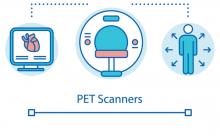How software that embeds emotional cues in audio helps treat patients

The power of music to evoke strong emotions is known to anyone who hears it – but the underlying mechanism remains unknown. Using sound manipulation tools that could elicit emotional responses, the EU-funded CREAM project has yielded insights into the brain. The work is also already inspiring novel clinical applications, from diagnosing speech problems to assessing brain surgery patients.









